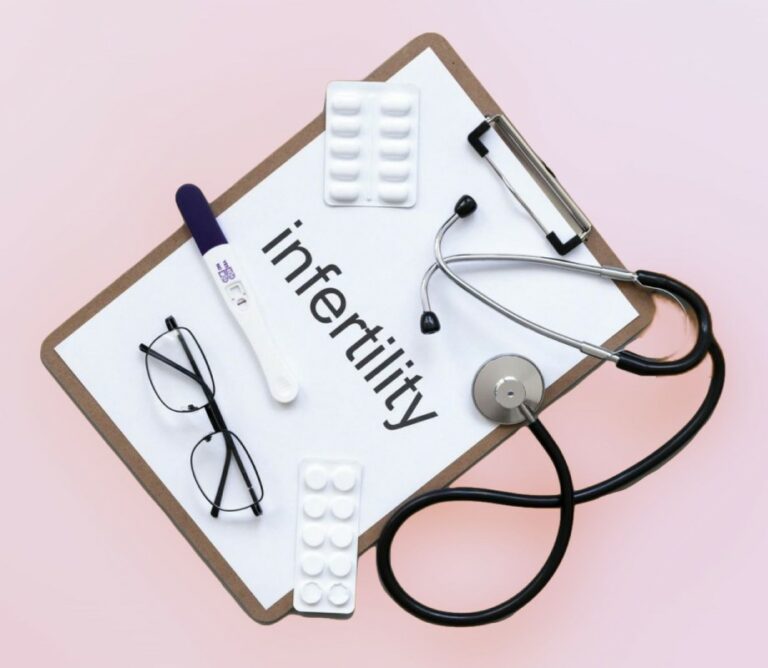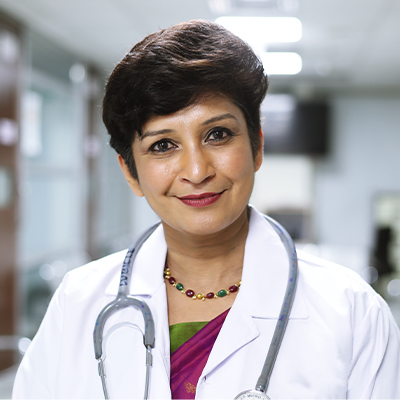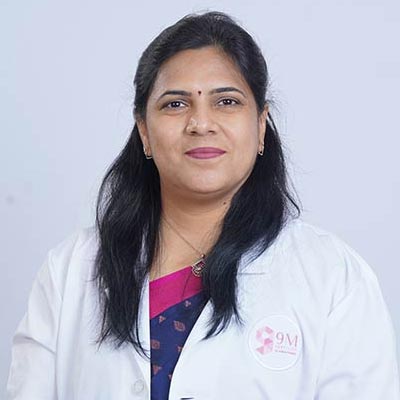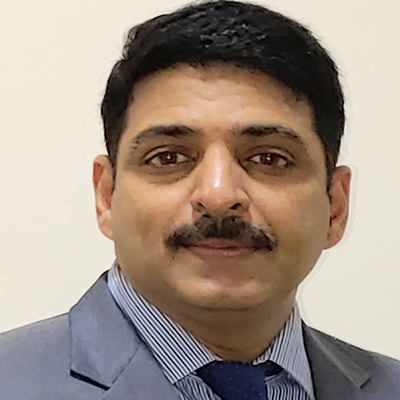Our Practice
Fertility services at 9M Hospitals
Fertility is a condition where a couple fails to get pregnant after a continuous year of trying to conceive. The risk of fertility increases as the couple gets older. Men with fertility issues may have low testosterone or a low sperm count. In women, fertility can occur due to thyroid disease, uterine fibroids, and endometriosis etc.
9M is one of the best hospitals to provide fertility services in Gachibowli, Hyderabad. The fertility experts at 9M provide treatment in a caring environment where the major importance is placed on accessibility, emotional support, personal attention, and technological excellence.
What are the risk factors that cause fertility in both genders?
The following factors may increase the risk of fertility in both genders:
- Age (over age 40 for men or over 35 for women)
- Excessive alcohol
- Stress
- Drug abuse
- Eating disorders such as bulimia and anorexia nervosa
- Diabetes
- Smoking
- Weight issue (underweight or obesity)
- Sexually transmitted diseases (STDs)
- Exposure to environmental toxins like pesticides and lead
- Over-exercising
- Radiation therapy or other cancer treatments.
What are the risk factors for female fertility?
The following factors may cause fertility in women:
- Kidney disease
- Abnormal menstruation
- Pelvic inflammatory disease
- Blocked fallopian tubes
- Celiac disease
- Polycystic ovary syndrome (PCOS), primary ovarian insufficiency, and ovarian cysts
- Pituitary gland disorders (Cushing’s syndrome)
- Uterine problems like uterine polyps, endometriosis, and uterine fibroids
- Sickle cell anaemia
- Thyroid disease
- Past ectopic pregnancy.

What are the risk factors for male fertility?
The following factors may cause fertility in men:
- Genetic disorder (cystic fibrosis)
- Varicocele (enlarged veins in the scrotum)
- Low testosterone or low sperm count
- High heat exposure to testicles from frequent use of hot tubs and saunas or tight clothing
- Testicular cancer and treatments
- Misuse of anabolic steroids
- Undescended testicles
- Retrograde ejaculation (the semen flows back into the bladder) or premature ejaculation
- Injury to the testicles or scrotum.
How is fertility diagnosed?
Before testing for fertility via various tests, your healthcare provider will try and understand your sexual habits and suggest how to improve your chances of getting pregnant. Fertility is affected by as well as affects emotional health and relationships that affect a couple’s sexual relationship. If suggestions at this stage do not help, then the doctors at 9M will proceed further to help you conceive.
For women:
Your doctor may ask you to record signs of ovulation, such as cervical mucous and basal body temperature, and you be told to use a home ovulation kit. In addition, one or more of the following may be done to diagnose or rule out a woman’s infertility concerns:
- Pelvic exam. The doctor will perform a pelvic examination, including a pap smear, to check for signs of disease or structural problems.
- Blood Tests. To assess hormone levels (thyroid and other female hormones)
- Hysteroscopy. The doctor will insert a hysteroscope (thin, lighted tube) into the vagina to examine the uterus.
- Transvaginal ultrasound. The doctor will insert an ultrasound wand to check for problems with the reproductive system.
- Laparoscopy. The doctor will insert a thin tube with a camera (laparoscope) through a small cut on the abdomen to identify problems like scar tissue, uterine fibroids, or endometriosis.
- Saline sonohysterogram (SIS). The doctor fills the uterus with sterilized salt water and performs a transvaginal ultrasound.
- Hysterosalpingogram (HSG). X-rays capture the injected dye that travels through the uterus and fallopian tubes and helps identify blockages.
For men:
The following test is done to diagnose or rule out a man’s infertility concerns:
- Blood Tests. To assess thyroid, testosterone, and other hormone levels. Genetic test using blood sample to check chromosomal abnormalities.
- Semen analysis. The test identifies problems with sperm, such as poor mobility and low sperm count. A needle biopsy is done to remove sperm from the testicles and test it.
- Scrotal ultrasound. An ultrasound may help identify varicoceles, etc.
If you are searching for the best fertility services in town, visit 9M. The finest doctors in the city are equipped to handle the most complex fertility cases and help you identify the cause of your fertility and recommend the appropriate solutions.
9M experts are highly skilled gynaecologists and surgeons. Our advanced and latest fertility equipment can offer a comprehensive range of fertility treatments. Together, the experts and technology are sure to help you achieve your dream of becoming a parent and make it a reality!






